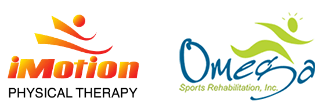Do you depend on drugs like oxycodone or hydrocodone just to make it through your day without crippling pain? Do you find yourself watching the clock anxiously until it’s time for your next dosage? If you answered yes to either of these questions, it’s possible you’re on the brink of opioid dependence.
You might be wondering how these drugs are affecting your long-term health, and with good reason! Opioid dependence can be a deadly situation.The good news is that you can kick your dependence on opioid drugs without ending up trapped by debilitating pain, thanks to the solutions provided by physical therapy. Contact iMotion Physical Therapy today to get started on this healthy, drug-free approach to pain management.
What Are Opioids, And How Do They Work?
Opioids are strong painkillers that are often prescribed to offset the effect of severe chronic pain. Traditionally, they are derived from substances in the poppy plant. Morphine, oxycodone,codeine, and hydrocodone are opioids that can relieve pain where other drugs fail.
It is common for doctors to prescribe these to patients dealing with pain due to cancer, acute injuries, and neurological or musculoskeletal pain. Subsequently, they can also produce feelings of euphoria, which in turn makes them substance that is extremely abused and addictive in both legal and illegal forms(such as heroin).
By attaching to opioid receptors in the brain and other structures of the body, opioids prevent the receptors against receiving pain signals. Simultaneously, the opioids trigger the release of large amounts of dopamine, a substance that gives a feeling of pleasure.
The Danger of Opioid Addiction
Opioids do more harm than good. These drugs are so effective at seemingly “getting rid of” the pain, but unfortunately, the painkilling and pleasurable benefits of opioids come at a terrifying price. The issue is that people become addicted to opioids because of the euphoric highs they experience while using them.
As a result of long-term opioid usage, the body builds up a tolerance to the drugs, and then will require larger doses in order to achieve the same effects. This ultimately leads to a very strong, very dangerous level of addiction.
It’s no surprise that more than 11 million Americans abuse opioids. Sadly, escalating tolerance levels in opioid users can result in them taking a fatal dose. Two-thirds of all overdose deaths in the U.S. are related to some form of opioid.
Physical Therapy Can Kick Opioid Dependency.
Opioid dependence can be avoided. Physical therapy is an excellent and safe alternative to drugs. An experienced physical therapist can prescribe you customized treatment methods that will help joints move more freely, loosen tight muscles, reduce inflammation, build up muscle strength, and help decrease the effects of neurological problems (for example, herniated discs and pinched nerves).
Physical therapy might be for you if:
- You’re having issues with addiction and depression or physical side effects as a result of continued opioid usage (or you want to avoid these issues altogether!)
- You have a chronic, incurable pain condition that might otherwise you to use opioids for your entire life
- You have musculoskeletal or neuromuscular pain
- Treating the underlying cause of the pain, instead of simply numbing it, is your ultimate goal
Even if your pain cannot be depleted entirely through physical therapy, treatment may still ease your symptoms enough so that you don’t have to take the maximum dosage of painkillers any longer. However, please be aware that if you’re currently dependent on opioids, your doctor must supervise any changes in dosage.
Your opioid dependency can stop today. Call our office to set up a time for a consult with one of our physical therapists about drug-free pain management options.
Sources:
- https://www.webmd.com/pain-management/physical-therapy#1
- https://www.drugabuse.gov/publications/drugfacts/prescription-opioids
- https://www.moveforwardpt.com/Resources/Detail/7-staggering-statistics-about-america-s-opioid-epi
- https://www.moveforwardpt.com/resources/detail/physical-therapy-vs-opioids-when-to-choose-physica
Tags: fitness, Imotion Physical Therapy, opioids, chronic pain, musculoskeletal pain, Physical Therapy, physical therapist, Health and Wellness, physical fitness, health


